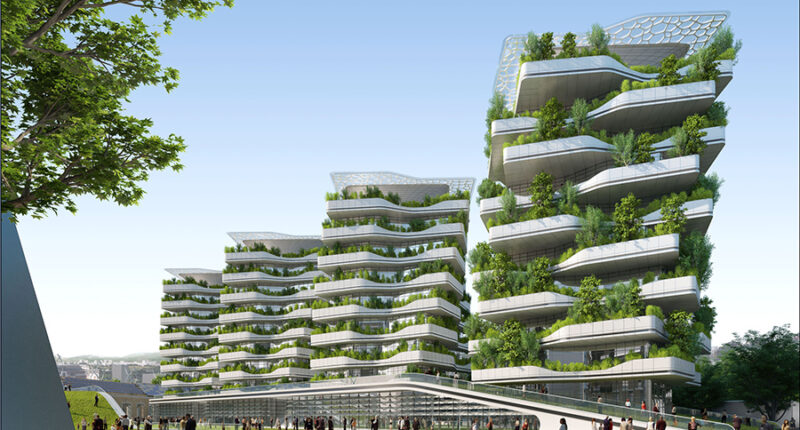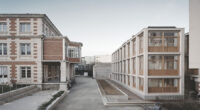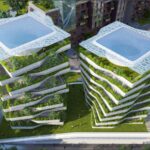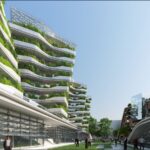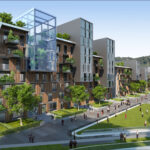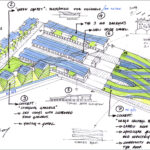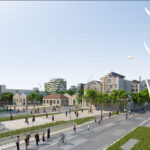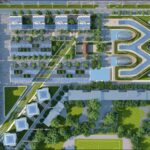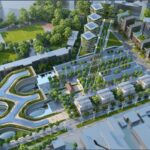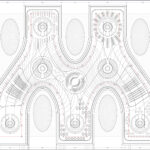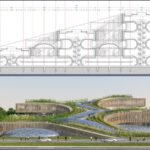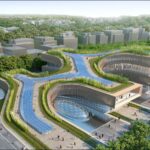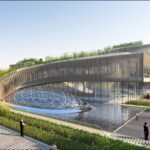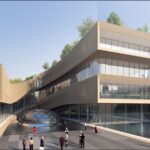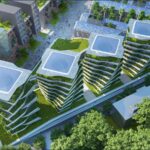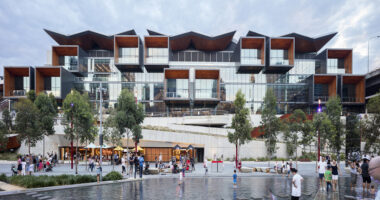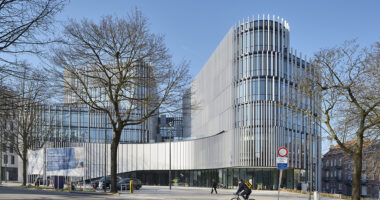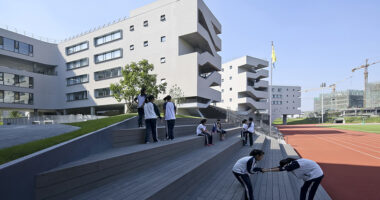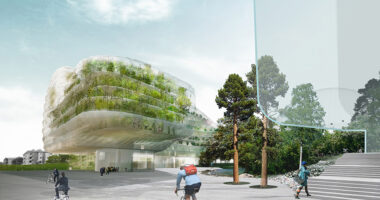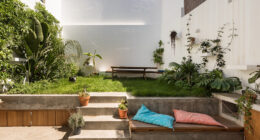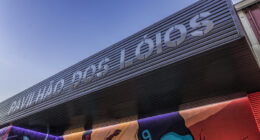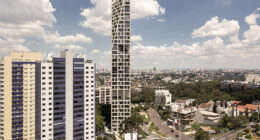Revitalizing History with Sustainability
The Città della Scienza masterplan, conceived by Vincent Callebaut Architectures, coffice – studio di architettura e urbanistica, and Studio d’Architettura Briguglio Morales, envisions a self-sustaining urban ecosystem in Italy that seamlessly blends sustainability with historical heritage. Developed for an international architectural competition, this innovative proposal transforms the neglected military district into a dynamic living city that continuously regenerates and evolves.
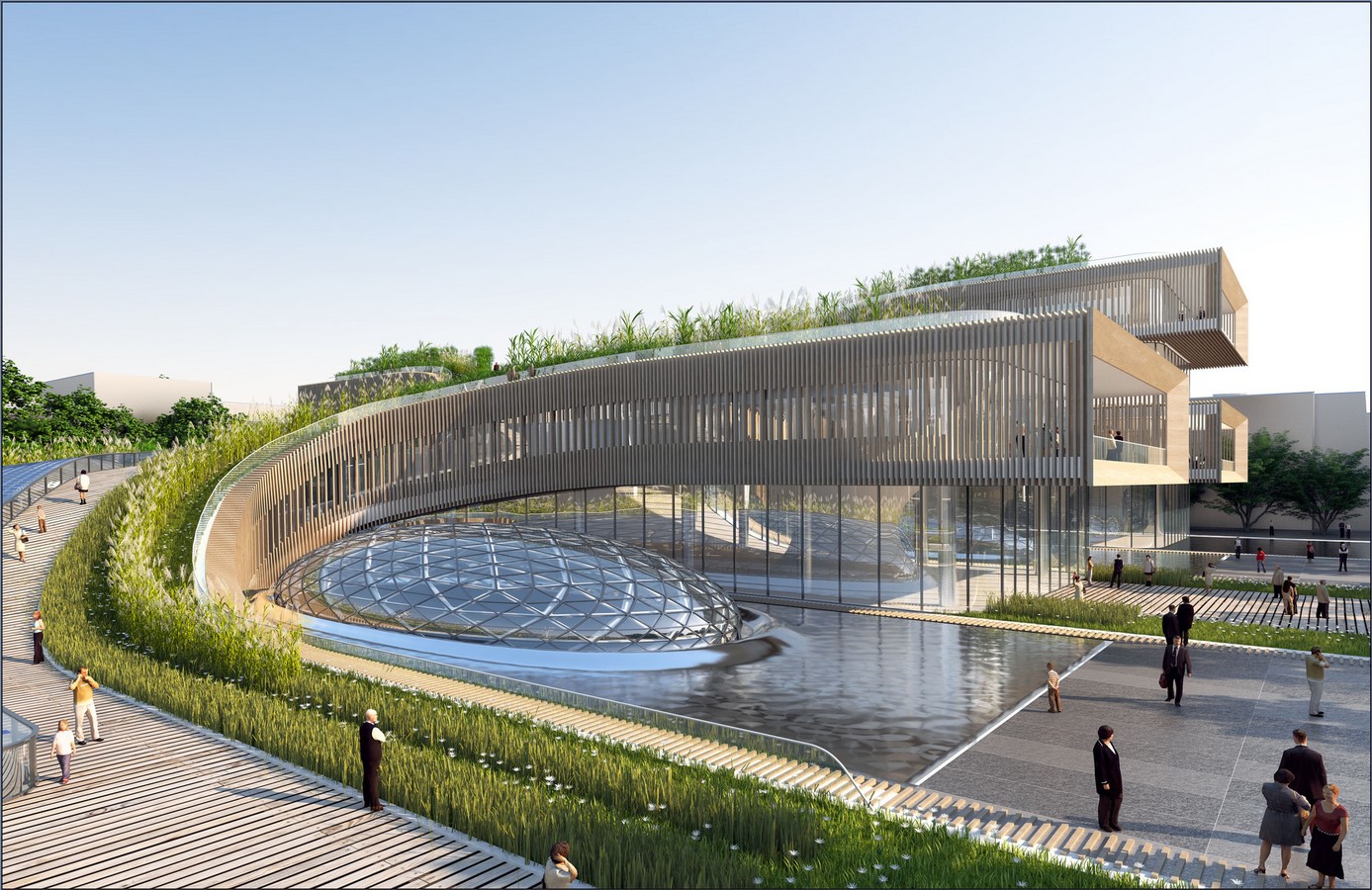
Building on Heritage
Drawing inspiration from the remnants of the military district, the masterplan embraces the site’s historical context while adapting it to modern-day needs. Abandoned industrial structures are repurposed into contemporary lofts, breathing new life into the architectural relics of the past. Existing pathways are reimagined as a functional network of public spaces, meticulously organized on a grid layout to optimize accessibility and connectivity across the site.
Balancing Public and Private Spaces
A key feature of the masterplan is the thoughtful segregation of public and private domains to ensure a harmonious coexistence. While residential and commercial zones delineate the perimeter of the site, residences are strategically positioned away from commercial activities to preserve intimacy and privacy. Rooftop orchards embedded within each building blur the lines between public and private realms, offering secluded green spaces within the bustling urban environment.

Cultivating Self-Sufficiency
The integration of extensive greenery, including rooftop gardens and landscape balconies, not only enhances the aesthetic appeal of the district but also fosters self-sufficiency. These communal gardens serve as a renewable source of food for residents, contributing to the local production of essential resources. Furthermore, they play a vital role in environmental conservation by filtering CO2 emissions and purifying the air.
Embracing Sustainable Practices
The masterplan embraces a holistic approach to sustainability, incorporating passive design strategies and cutting-edge technologies. Natural daylighting and rainwater harvesting systems minimize resource consumption, while photovoltaic panels and integrated wind turbines generate renewable energy. Pedestrian-friendly pathways promote walkability and reduce reliance on cars, with underground parking facilities minimizing harmful emissions.
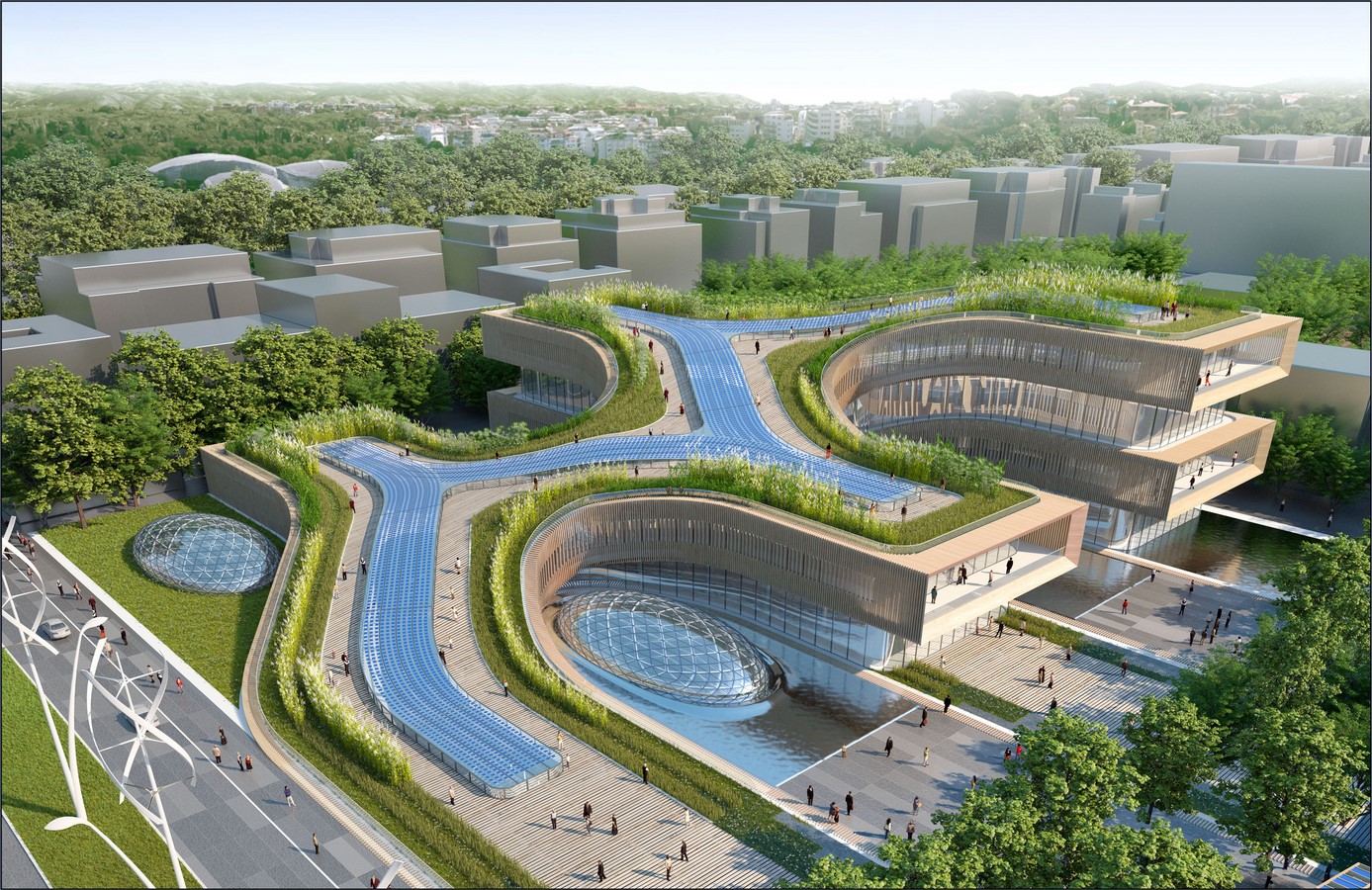
Shaping the Future of Urban Living
By seamlessly blending heritage preservation with sustainable urban design principles, the Città della Scienza masterplan offers a glimpse into the future of self-sustaining cities. With its innovative approach to architecture and urban planning, this visionary project sets a precedent for creating vibrant, resilient, and environmentally conscious urban environments that prioritize the well-being of both residents and the planet.
